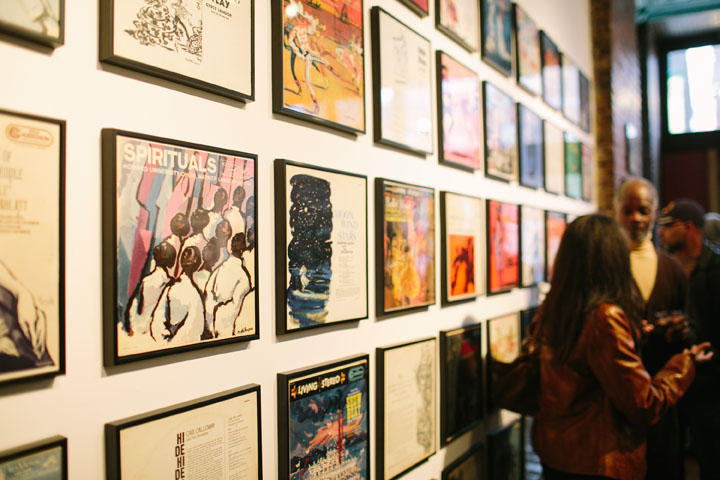
Seed Award
Providing support when just a small amount of investment has the potential to yield big results in the community.
Opening of The Album Art of Mozelle Thompson
Penn Avenue Arts District, November 2014Seeding Transformative Change
The Seed Award program was the flagship funding program of The Sprout Fund. More than 300 modest financial awards up to $10,000 supported community-based projects and initiatives at the grassroots level.
The model was the natural outgrowth of the New Idea Factory, which worked in 2000 to develop the ideas of young people (18-40 years old) and contribute to the region’s overall ability to attract and retain its young talent. Seed Award was created as a mechanism to support these and future innovative ideas to make Pittsburgh a better place to live, work, and play.
The program was unique within Southwestern Pennsylvania, with a distinctive approach to facilitating community change and creating social impact through a blend of grantmaking, community engagement strategies, and other forms of support. Seed Award supported, celebrated, and showcased the initiatives of young and creative people in the region.
The program’s cumulative power helped to create a critical mass of positive change for Pittsburgh and the surrounding communities of Allegheny, Fayette, and Greene counties.
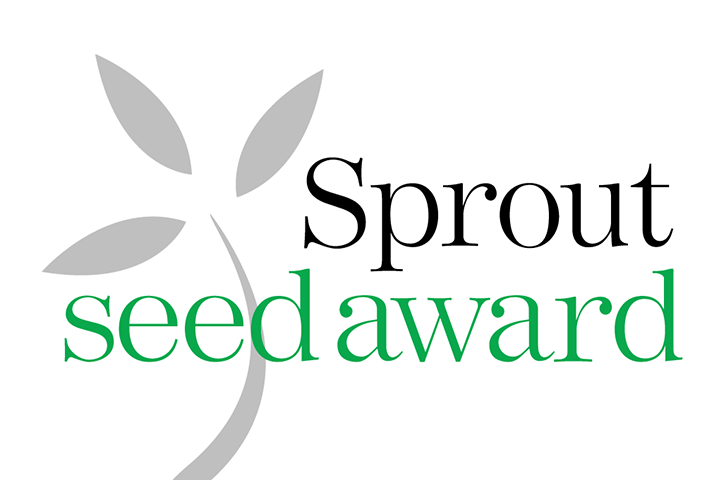
Program In Brief
Years Active
2001–2014
Total Investment
$1.9 million
Applications Received
2,100+
Funded Projects
302
Average Grant Size
$6,200
Funded Project Highlights
Seed Award projects were innovative, non-traditional ideas that focused on current issues and challenges faced by the community, inspiring a diverse group of participants to be more involved in their communities and assume leadership roles.
Art, Music, & Performance
Celebrations of local artists through installations, productions, performances, and other art-related experiences.
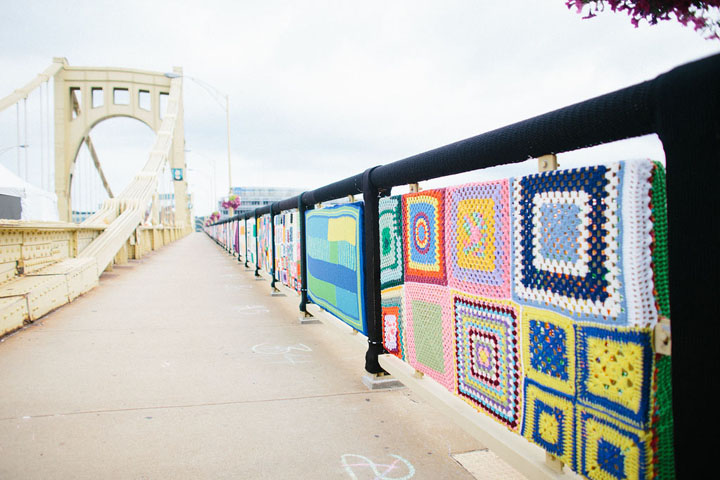
Knit the Bridge
Wrapping the Andy Warhol Bridge with colorful yarn, knitted by hundreds of area residents, creating the largest community “yarn bomb” of its kind in the United States.
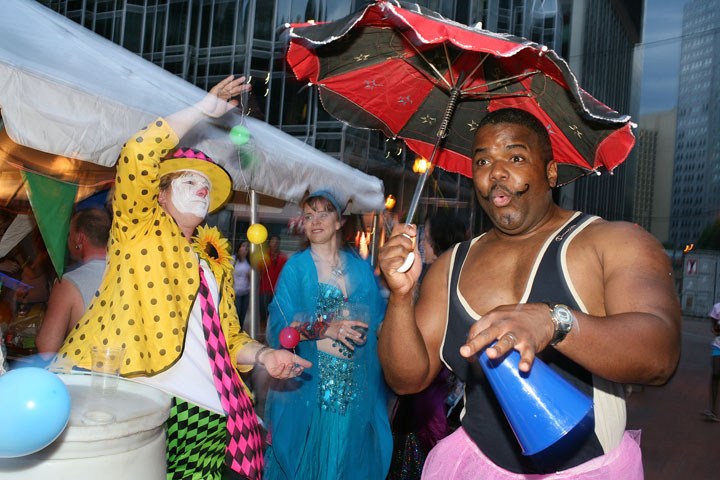
Art Olympic Theatre
Artists competing to make winning pieces within a specific period of time. Equal parts gallery opening, sporting event, and theatrical performance!
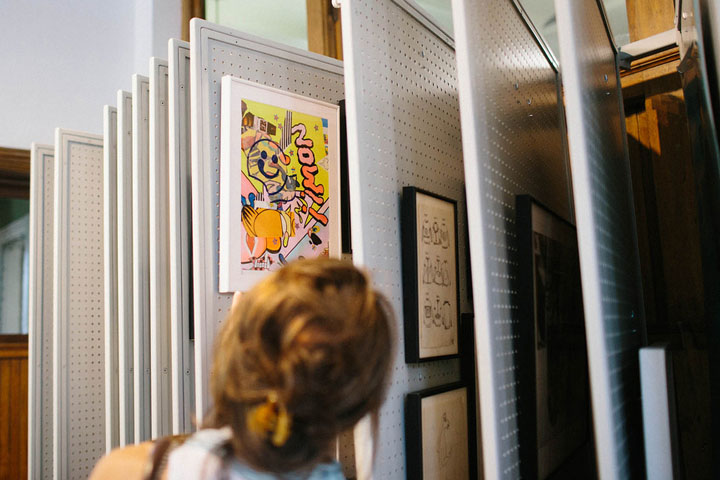
Art Lending Collection
Enabling those with library cards to check out works of art by regional and international artists for home enjoyment.
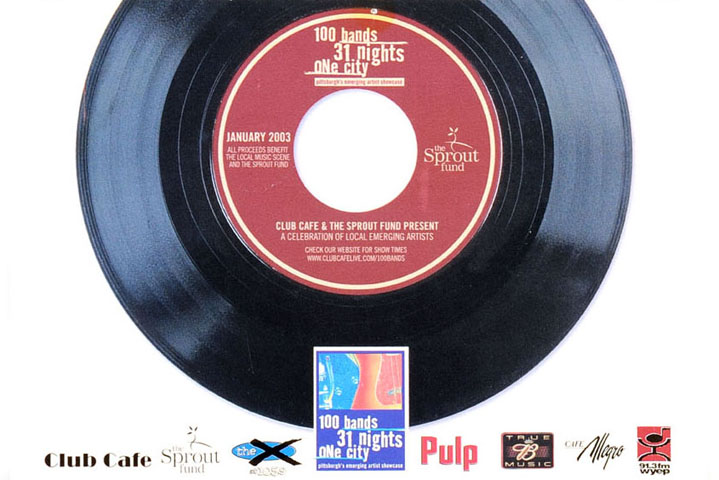
100 Bands, 31 Nights, 1 City
Highlighting the rich, diverse, but often underappreciated musical culture of Pittsburgh in one eclectic month.
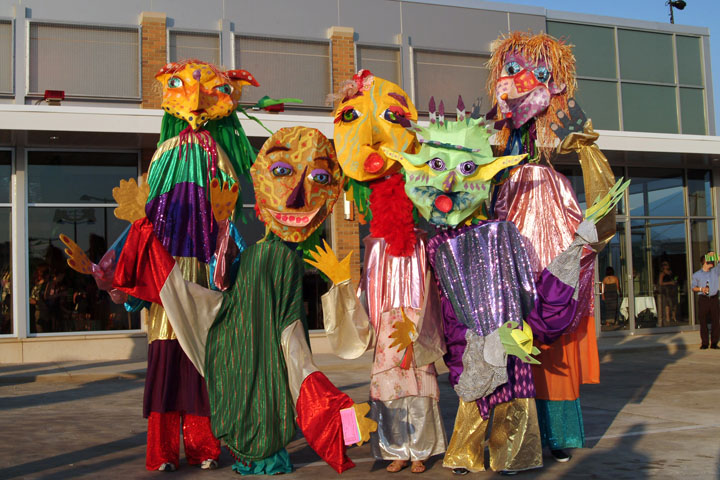
Puppets for Pittsburgh
Lending puppets to area nonprofit organizations to add energy to their public events throughout the region.

Take Me Out
Examining issues of race, sexual identity, and cultural icons in the context of Major League Baseball.
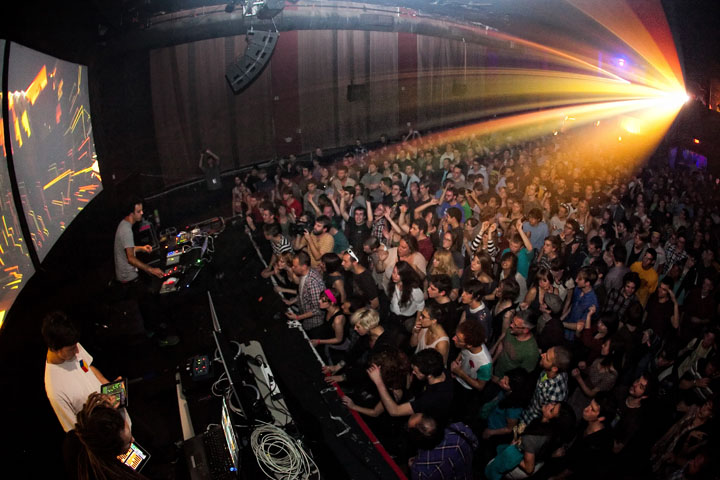
VIA Music & New Media Festival
Showcasing local and international audio and visual artists through a year-round event series and week-long Music & New Media Festival.
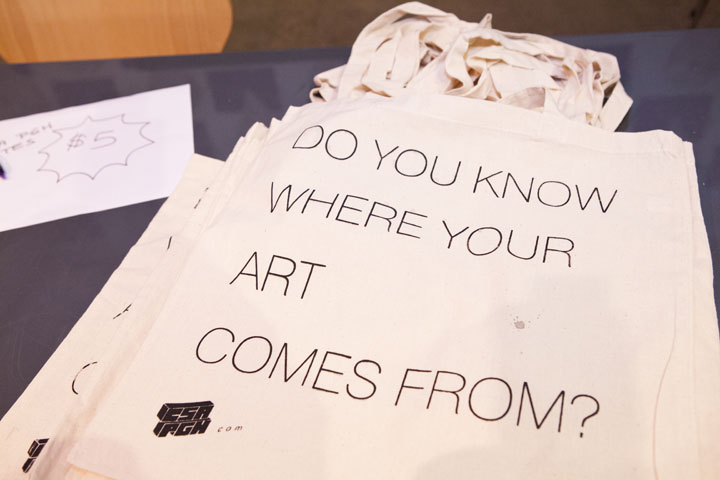
Community Supported Art (CSA PGH)
Creating “shares” of art from local artists to be purchased by art patrons across the city, similar to boxes of produce from local farms as part of an agricultural CSA.
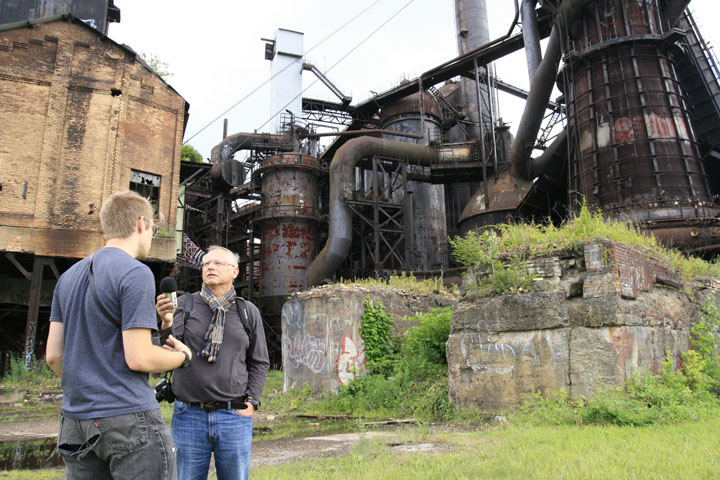
ALLOY Pittsburgh
Providing a laboratory for 15 emerging artists from the Pittsburgh region to create site-based projects that investigate the creative reuse of a post-industrial site.
Buses & Bikes
Initiatives dedicated to improving and advocating for alternative transportation throughout the region.
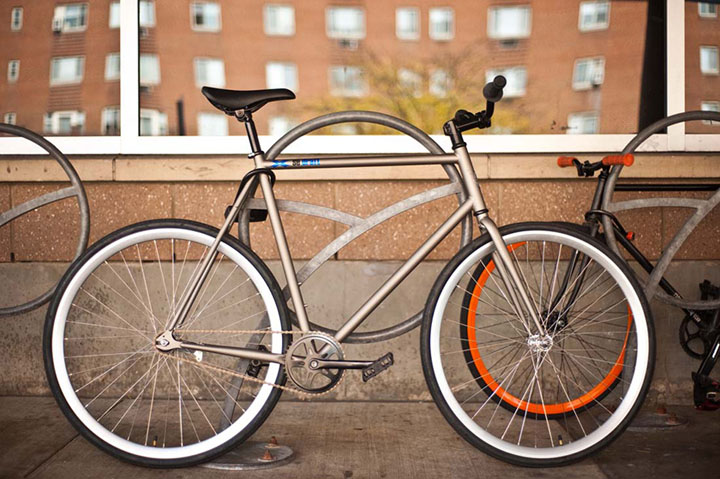
Three Rivers Bike Racks
Working to address the dearth of amenities for cyclists in the city by installing artistically designed bike racks in highly visible commercial areas.
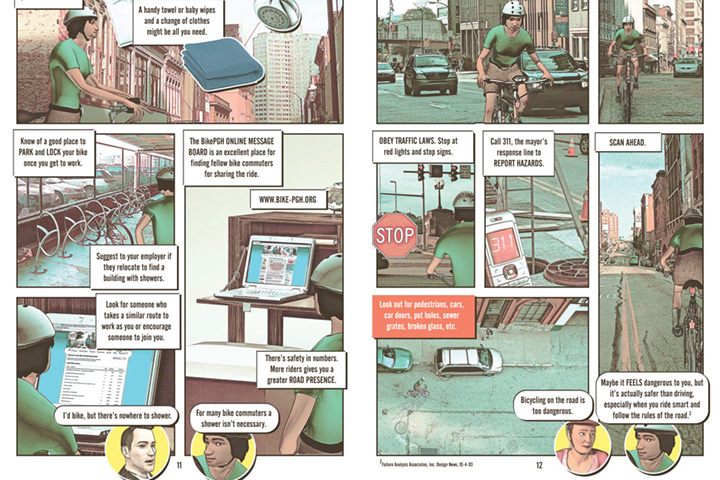
Commute-by-Bike Zine
With Pittsburgh as its setting, the comic book takes the reader on a fun, exciting journey that teaches the basics of bicycle commuting.

BikeFest
Establishing an organizational framework for hosting community events, activities, and promotions to celebrate bicycling.
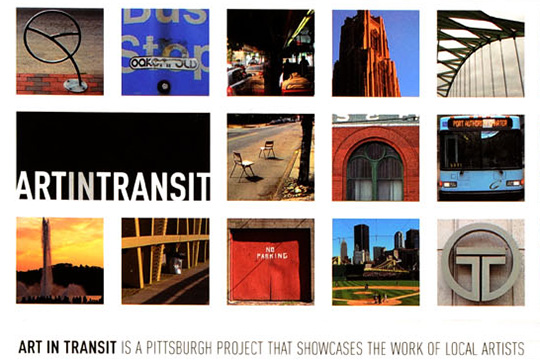
Pittsburgh Art in Transit
Adorning city buses with art to solicit support for area transit while also providing a public venue for artists to display their work.
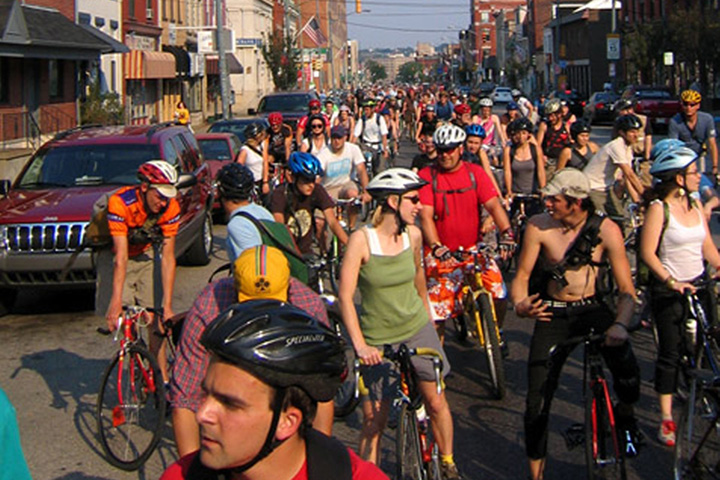
Car Free Streets Event
Closing streets to cars so bicycles, pedestrians, and other alternative modes of transportation could safely access them during Pedal Pittsburgh.
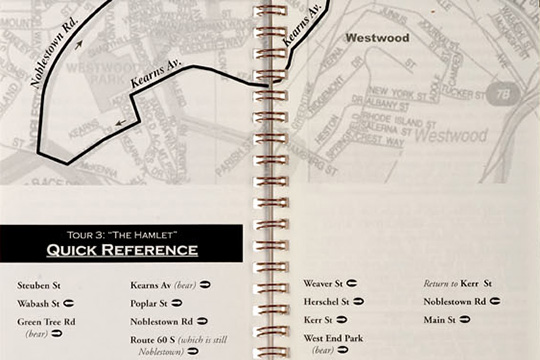
3 Rivers on 2 Wheels
Guiding readers through 10 cycling excursions that stretch throughout various city neighborhoods.
Dialogue & Political Engagement
Creative ways to engage local residents in the civic life of their neighborhoods, towns, and rural communities.
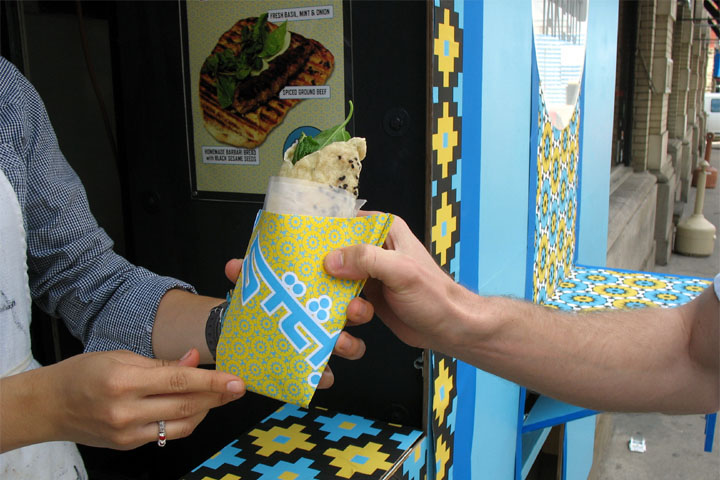
Conflict Kitchen
Serving cuisine from countries with which the United States was currently in conflict as a way to create greater awareness of the culture in question.

Run Baby, Run
Giving young adults in Pittsburgh the basic tools to run for office, including info on finding open positions, forming committees, creating budgets, and working with the media.
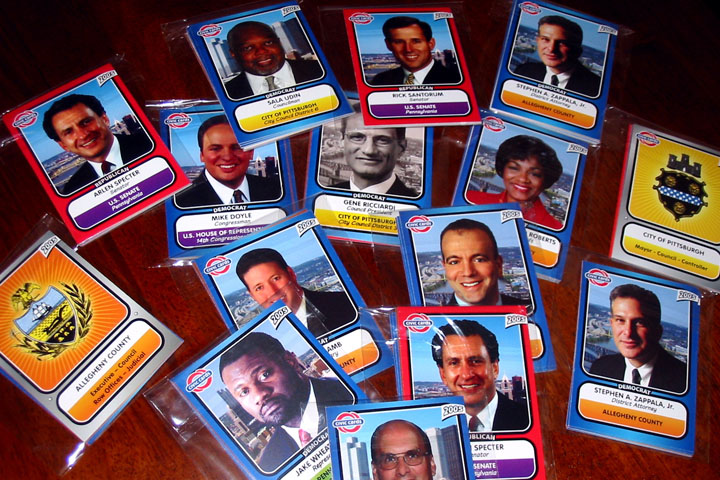
CivicCards
Providing an interactive way to learn about government leaders as well as key features of Pittsburgh institutions and history.
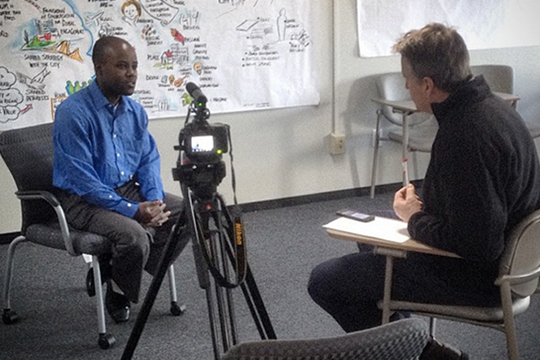
Switchboard Stories
Collecting stories of collective action to enrich the Global Switchboard’s dialogue with current members, neighborhood residents, the foundation community, and policy makers around the question, “why should I care about global engagement in Pittsburgh?”
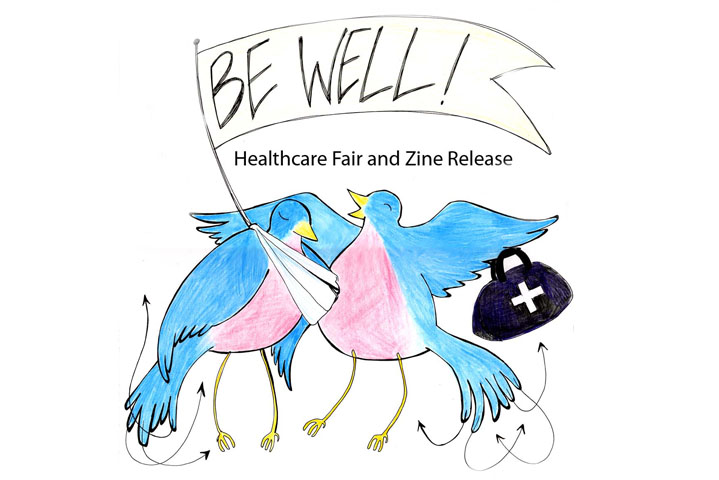
Be Well! Healthcare Options for the Uninsured
Compiling information on local social services and health care organizations in a zine-format guide to health insurance alternatives for young adults without coverage.
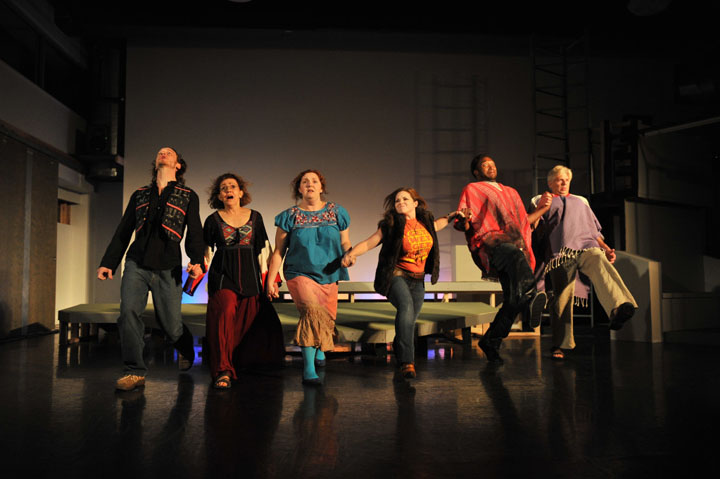
Camino
Exposing the booming business of private immigrant detention centers and illuminating questions of survival and connectedness through a play about undocumented immigrants.
DIY
Events and activities for all ages that highlight the region’s industrious roots.
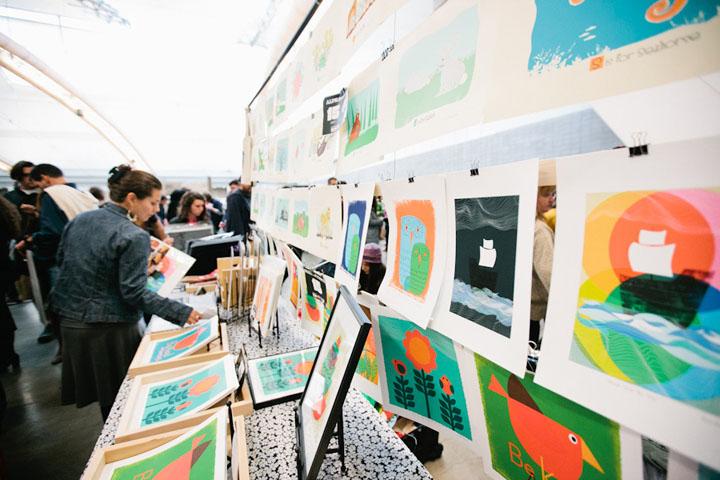
Handmade Arcade
Going beyond the traditional art fair by exposing the community to nontraditional, do-it-yourself crafters, musicians, and zine publishers.
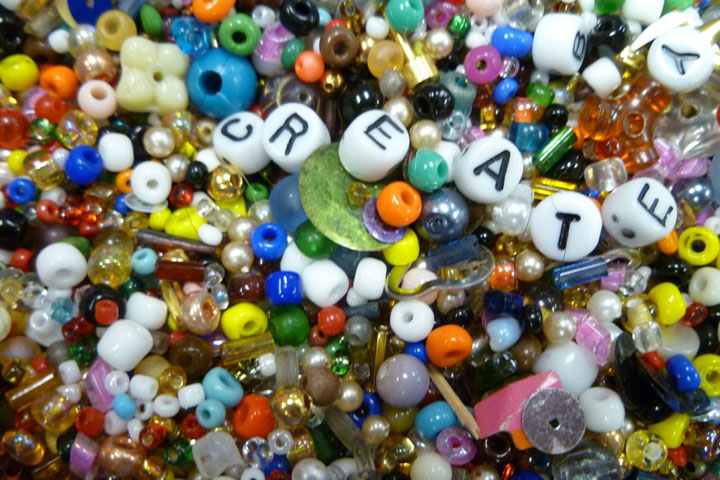
Creative Reuse
Collecting unsual byproducts and surplus items to sell to the public and host hands-on creativity and making events.
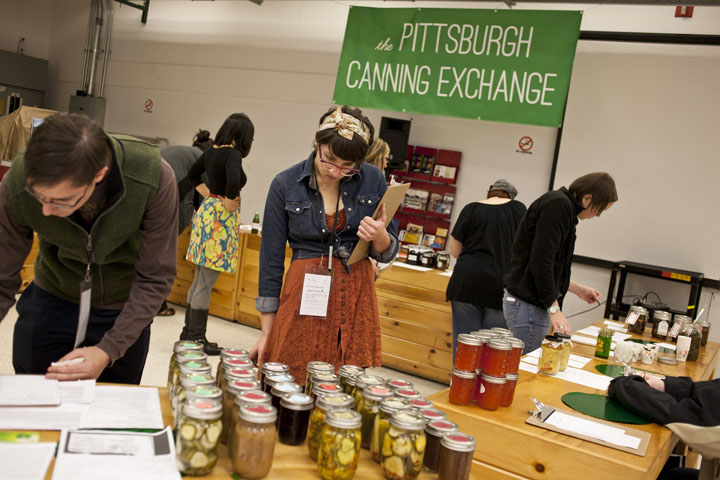
Pittsburgh Canning Exchange
Creating a network where interested people can learn about local food, sustainability, and canning and trade canned goods, recipes, and techniques.
Environment
Projects and programs devoted to biodiversity, air quality, pollution, cleanup, river life, and urban ecology.
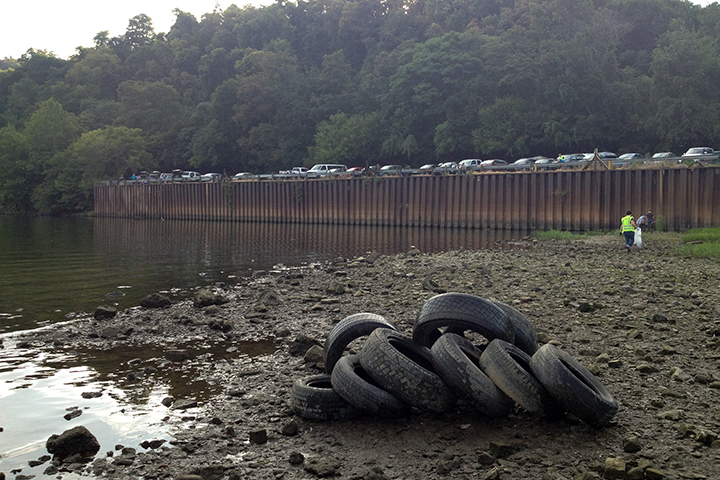
Tireless Fridays
Encouraging all Pittsburghers to take part in the fate of the city’s rivers by cleaning up some of the most neglected and abused riversides.
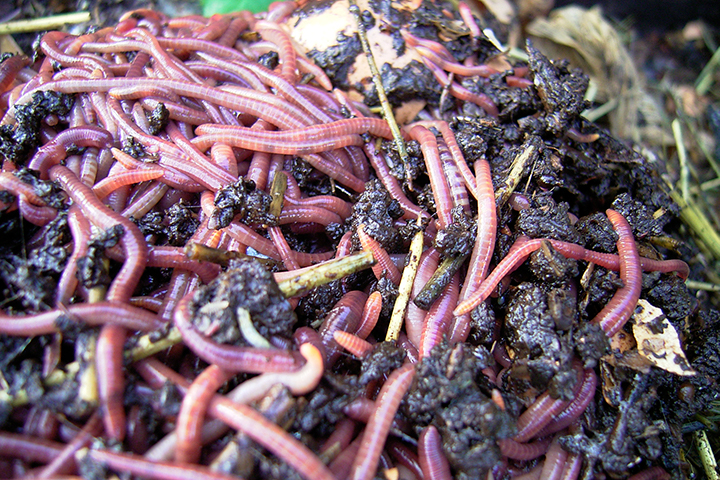
Worms for a Better World
Using an urban worm farm and community engagement to teach about sustainable waste management and composting.
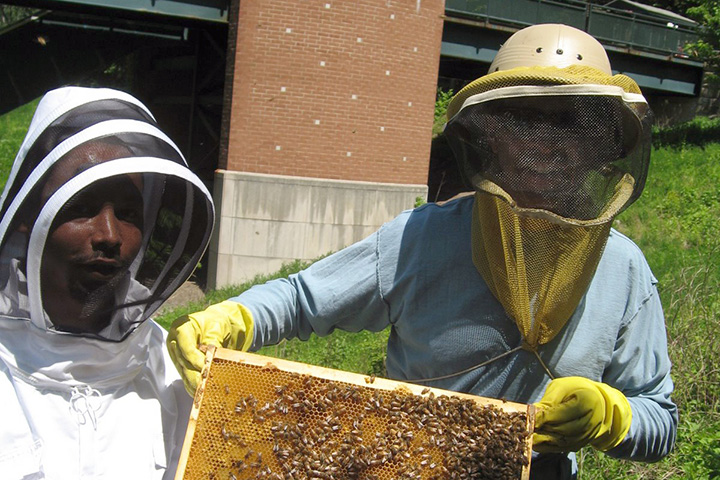
Burgh Bees
Promoting honeybees as a vital part of Pittsburgh’s urban agriculture community through an open beekeeping group.
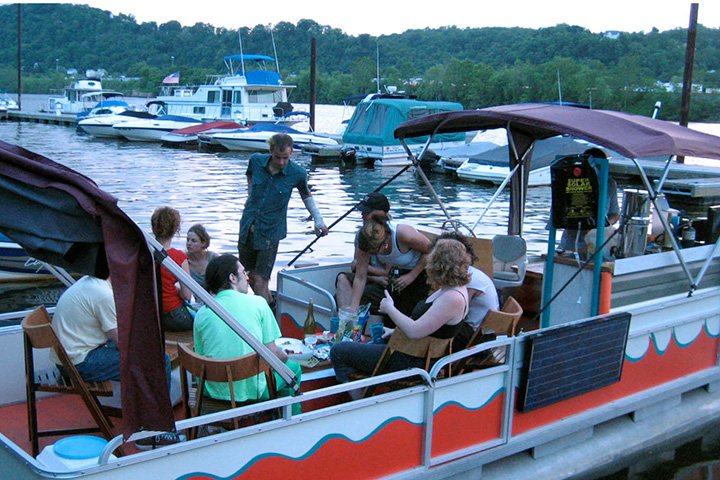
Ohio River Lifeboat
Encouraging ecological consciousness through a series of Harvest Dinners highlighting the social and ecological history of the Ohio River.
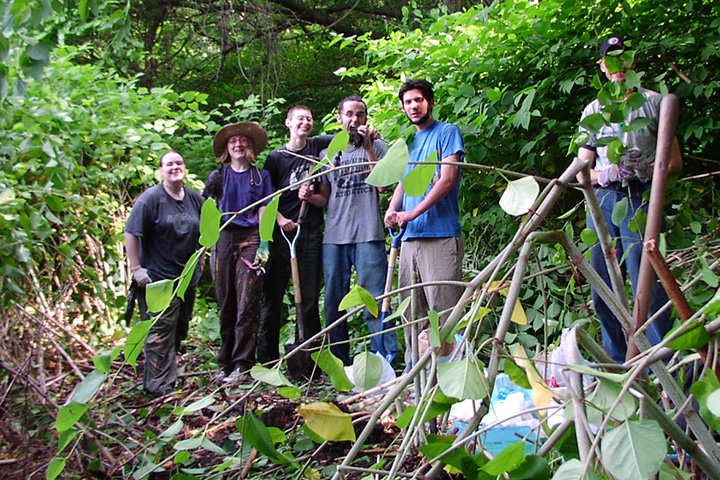
Knotweed Project
Shedding light on the environmental impact, history, and opportunities presented by Japanese Knotweed, an invasive species that has take over 8% of stream banks in Allegheny County.
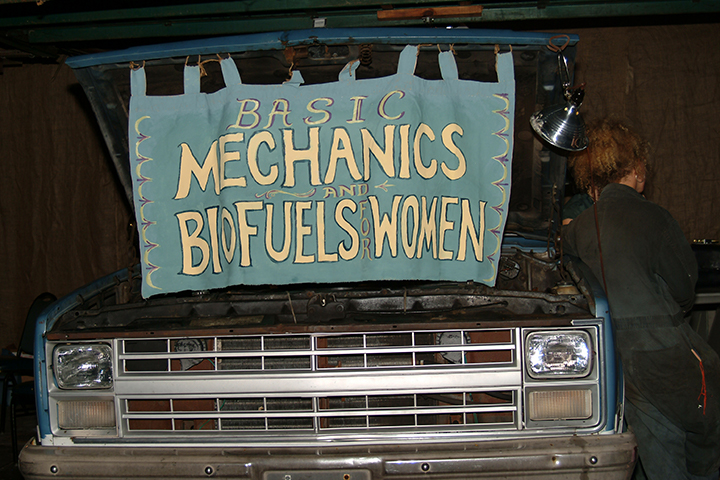
Basic Mechanics and Biofuels for Women
Providing beginners’ auto mechanics and alternative fuels workshop for women, with hands-on training to help convert vehicles to biofuels.
Neighborhoods
Hands-on approaches that bring people together to capture the unique history and identity of the local community.
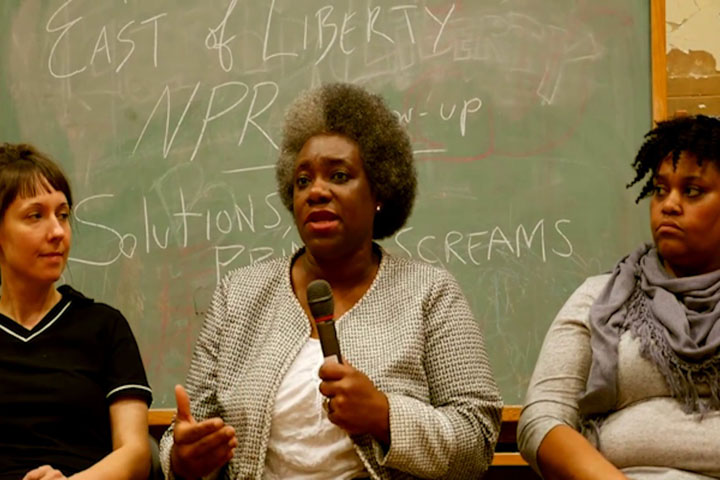
East of Liberty
Capturing the revitalization of the East Liberty neighborhood of Pittsburgh, specifically the demolition of the East Mall apartment complex and the displacement of its former residents.
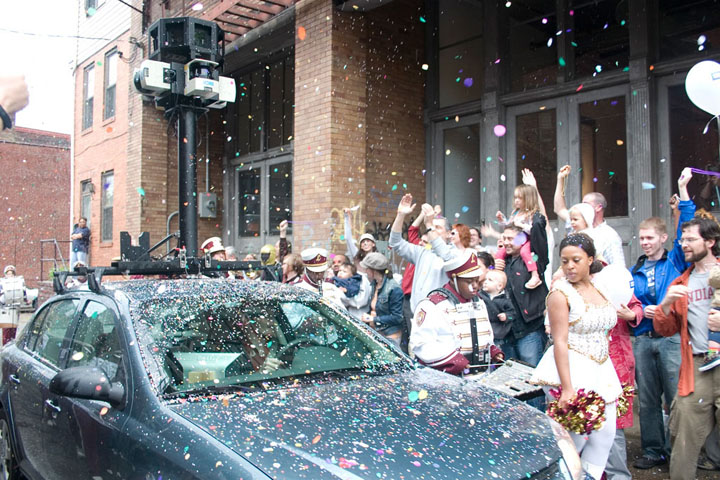
Street with a View
Staging freeze-frame scenarios on Sampsonia Way on the Northside while Google technicians captured images for Google Maps’ Street View.
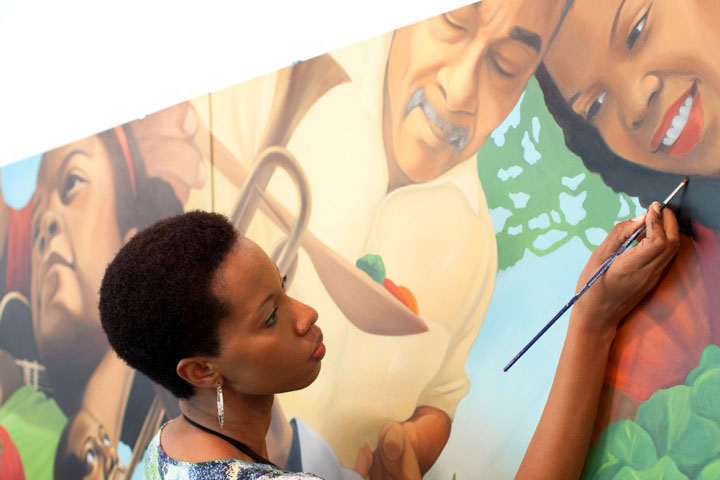
Hill District Marketpieces
Celebrating the renowned cultural and culinary history of the Hill District through interior and exterior artworks for the Shop n’ Save supermarket in the Hill District.
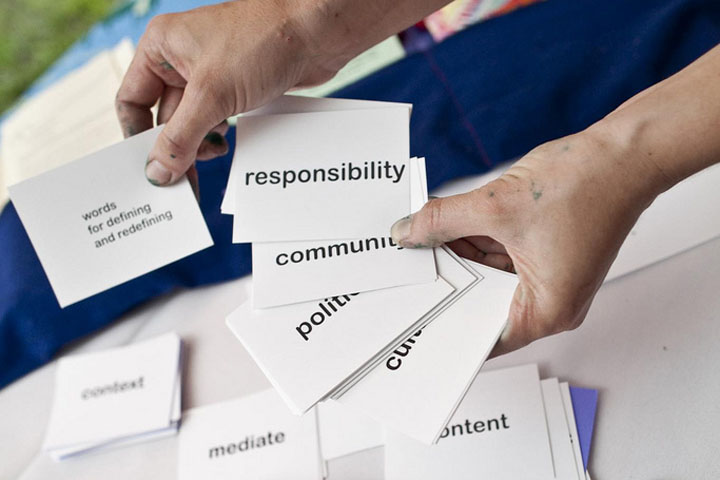
Transformazium
Connecting residents of Braddock with local organizations, and organizations with each other to encourage information and service sharing in the neighborhood.
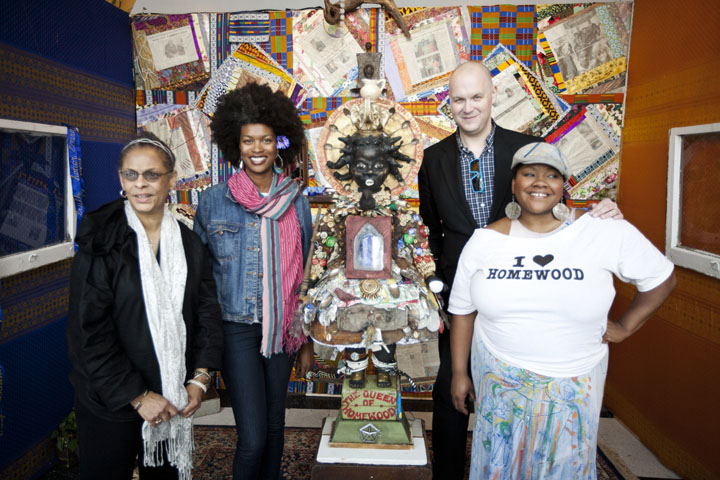
HOMEWOOD Artist Residency
Inviting national and international contemporary artists who represented the diversity of Homewood to take residence in rehabilitated houses as combined living and studio spaces.
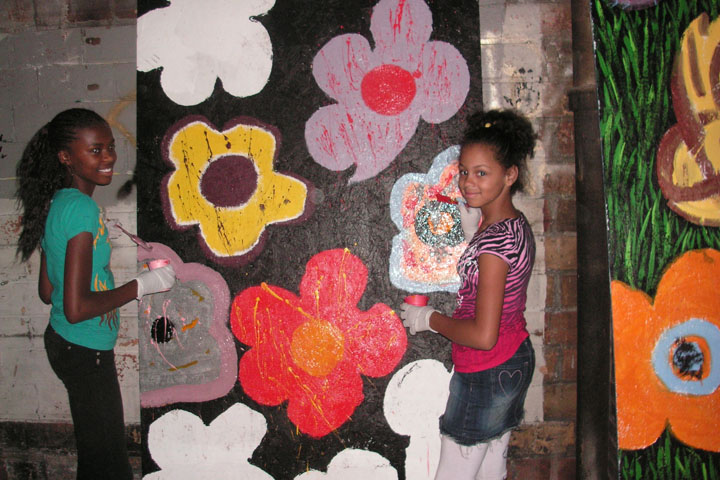
Pittsburgh Beautification Project
Erecting colorful Andy Warhol paintings over the empty windows and doors of abandoned buildings in the city’s blighted areas.
Play
Attention-grabbing, unique approaches that create a more spontaneous and lively Pittsburgh.
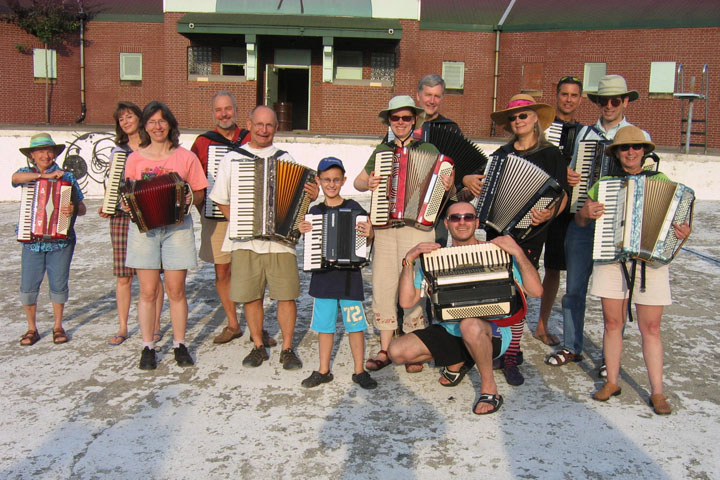
Accordion Pool Party
Utilizing a decommissioned public pool to demonstrate how forgotten public spaces can be used for social and artistic events.
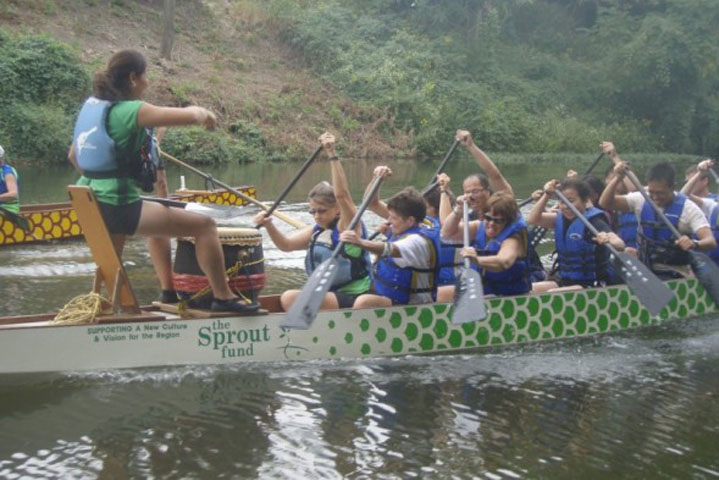
Dragon Boat Racing
Encouraging locals to enjoy the rivers through the competition, fitness, and camaraderie of this 3,000-year-old Chinese rowing tradition.
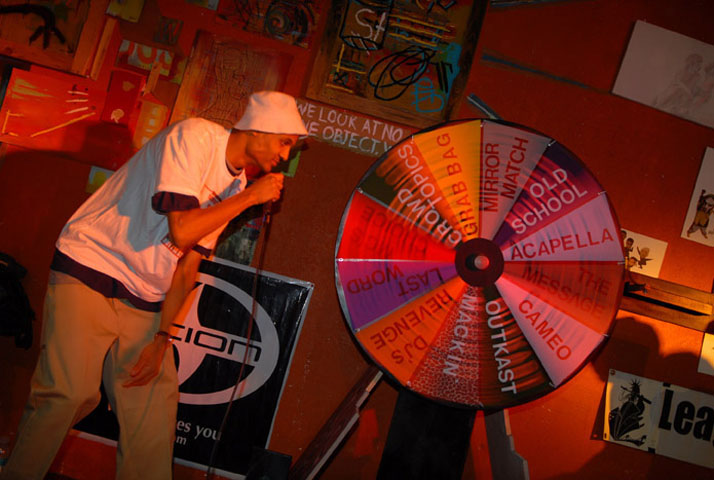
Rhyme Calisthenics
Providing a venue for current and future hip-hop artists to sharpen their improvisational performance skills and expand their artistic subject matter.

Vaudeville Carnivale
Highlighting contemporary approaches to Old World theater inspired by vaudeville, burlesque, gypsy carnivals, variety shows, and circuses.
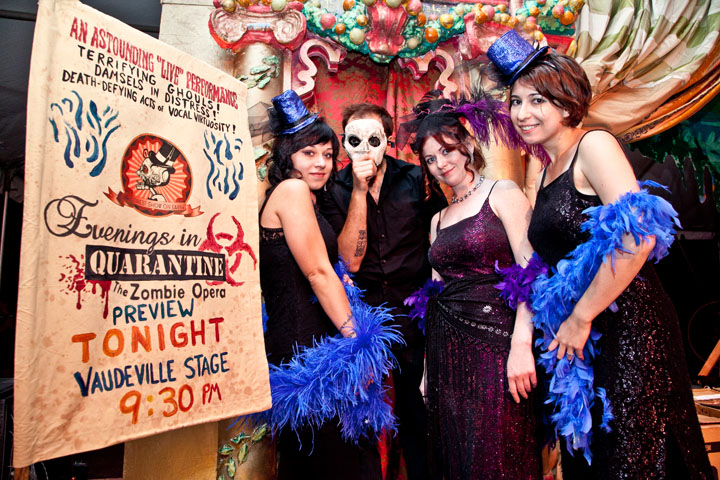
Evenings in Quarantine
Highlighting some of Pittsburgh’s most iconic locations and celebrating the keystone creature of Pittsburgh’s cultural heritage, the zombie, through a hybrid stage and film production.
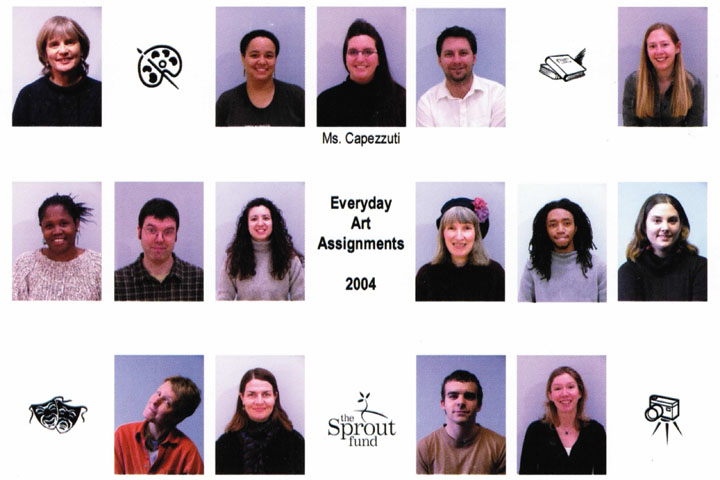
Everyday Art Assignments
Connecting artists and encouraging community members to work on their own independent crafts using an online platform.
Program Features
The People Behind the Projects
Setting out to establish a new mechanism to seed lasting community change, Sprout championed trailblazers whose innovative ideas had the potential to create transformative change.
Bridging Industries
Project managers and team members represented the diversity of backgrounds, interests, experience, and expertise found in the region.
Building Networks
They joined and created networks—civic, social, and professional—to surround themselves with new people and ideas.
Shifting the Culture
They set trends, took action, and influenced the perceptions of others, building a culture of inclusion and collaboration.
Application Assistance
Because not every prospective applicant was an experienced fundraiser, Sprout implemented a series of optional support services that anyone could use in advance of the application deadline.
Open Application Workshops
We hosted workshops on the second Friday of every month for more than a decade, where anyone could drop in to learn about the process and ask questions.
Draft Review
Staff provided feedback on in-progress applications to help improve projects prior to submission.
Denied Applicant Feedback
If at first they didn’t succeed, applicants could learn what the committee said about their proposal and make edits before trying again.
Community Decisionmaking
Sprout believed that funding recommendations were best made by those that understood the needs of the project’s intended audience intimately and that decisions were rooted in consensus instead of allowing the loudest voice in the room to carry the day.
Jury of Peers
Seed Awards were reviewed by people in the target audience the projects were designed to serve.
Individual Criteria Review
Reviewers judged applications based on established criteria critical to the success of small community projects.
Consensus-Based Decisions
A final meeting allowed committee members to review high-priority projects and make final recommendations for support.
Grantee Support
With service-oriented staff-to-project administration and a peer mentorship program, project managers were assisted in the planning, implementation, and evaluation of their initiatives.
First Project Meetings
In-person meetings helped project leaders get to know program staff, who shared suggestions and feedback from the community-based advisory panel.
Peer Mentorship
Mentors provided customized guidance and support to meet project managers’ needs, promoting project success and leadership potential.
Project Referrals
Active projects were often referred by Sprout staff to complementary projects, services, or individuals in the community to further enhance each project’s strengths.
Spinoff Programs
Grand Ideas
Demonstrated that a little bit of funding and willingness to take a chance on an unproven idea can go a long way when you simply ask, “How would you use $1,000 for an innovative community project?”
Root Award
Helped Seed Awardees scale up by making $25,000 grants available only to former Seed Award recipients for a new proposal with a greater scope than their previously supported project.
Awards in Fayette & Greene
Brought the Seed Award approach to a new geographic area, supporting creative ideas that addressed the needs and opportunities unique to Fayette and Greene counties with $5,000 project grants.
Acknowledgements
Thank you to all those who made this program possible!
Supporters
- NEED TO ADD
Partners
- NEED TO ADD
Staff
- Cathy Lewis Long 2001-2002
- Matt Hannigan 2001-2004
- Mac Howison 2004-2014
- Sandra Hartkopf 2012-2014

